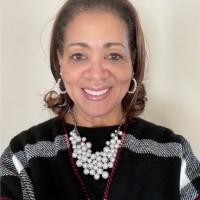
Cultural Observations a Time for Reflection
October hosts three important cultural observances, each inviting reflection and celebration.
Rosh Hashanah, the Jewish New Year, marks a time of introspection and renewal, while Yom Kippur, the Day of Atonement, prompts deep spiritual contemplation and forgiveness.
Just days later, Indigenous Peoples' Day honors the resilience and contributions of Native communities. This day reclaims stories and recognizes histories often overlooked.
Rosh Hashanah, Yom Kippur and Indigenous People’s Day have much in common. Together they explore themes of reconciliation, justice and community. By reviewing them, we can develop a richer understanding of cultural traditions. We also recognize our shared humanity.
Rosh Hashanah
Rosh Hashanah began on sundown October 2 and ended after nightfall on October 4. Rosh Hashanah is an important two-day holiday. It focuses on long prayer services in synagogues, spending time with family and praying for repentance. This holiday is also known as Yom Teruah. Rosh Hashanah is associated with many different symbols, obligations, customs, and traditions from over thousands of years. This holiday marks the beginning of the Jewish calendar year. These days are important as they are a time of atonement and reflections.
Feasts are prepared using recipes that have been passed down from one generation to the next. Preparing these dishes requires skill and knowledge. Traditionally, there always seemed to be a grandmother or aunt around who is busy supervising and teaching the younger generation. Feasts include round challah bread, pomegranates, and fish heads. Apples dipped in honey signify a happy and sweet year.
Evening candle lighting and fasting on the eve of Rosh Hashanah is a part of this celebration. Another custom is to try to minimize frivolity and use free time for the recitation of Psalms. The blowing of the shofar (ram’s horn) on both mornings of the holiday is normally done in the synagogue as part of the day’s services.

Yom Kippur
Yom Kippur is 10 days after Rosh Hashanah. According to Jewish tradition, on Rosh Hashanah God inscribes each person’s fate for the coming year into the Book of Life and waits for Yom Kippur to “seal” the verdict. Observances of Yom Kippur such as fasting and long prayers are interpreted as indications of closeness of God. Creative labor and the use of electronics is forbidden. It is also forbidden to shower and fully wash one's hands, apply deodorant, wear leather and jewelry, and have marital relations.
Yom Kippur is a day of joy since the Jews believe that God does forgive them and therefore it is also cause of celebration.
Indigenous People's Day
Indigenous Peoples’ Day celebrates  and honors Indigenous American people. It commemorates their history and cultures. It is celebrated on the second Monday in October and held the same day of the recognition of Columbus Day which honors Italian explorer Christopher Columbus.
and honors Indigenous American people. It commemorates their history and cultures. It is celebrated on the second Monday in October and held the same day of the recognition of Columbus Day which honors Italian explorer Christopher Columbus.
This day recognizes and honors the beautiful traditions and cultures of the Indigenous People. It celebrates those not just in America, but around the world. Their way of life and culture carries wisdom and valuable insights into how we can live life more sustainably. Indigenous cultures and the practices that arise from them can vary widely. Recognizing each community’s unique history, culture and traditions is an important first step to showing respect.
Indigenous traditions are characterized by:
- Inheritance and practice of unique cultures and ways of relating to people and the environment.
- Historical continuity with a given region prior to colonization.
- Strong link to their lands.
- Distinct social, economic, and political systems.
- Unique languages, cultures, beliefs, and knowledge systems.
Afew Indigenous practices include:
- Focus on spirit – connecting to sources larger than self.
- Definition of a healthy person – establishing a good relationship with everything in nature; accommodating openness, humility, and respect.
- Restoring the emotional – having a pure heart is central to living properly.
- Respect for everyone’s worth – each person is considered born into sacredness, goodness and kindness.
In recognizing just three of the holidays celebrated in October, we take the time to celebrate those in the Jewish community and the Indigenous People’s community for their strength and everything that they give to us all. We believe the richness of our PSL communities comes from the residents, family members and team members from many backgrounds. We believe that what makes our communities a warm and welcoming place to live, and work is due to celebrating the diversity that we all bring. We hope that what was shared in this month’s blog reminds everyone how rich our communities can be when we celebrate all cultures.
About LaJeune Adams
PSL’s Cultures and Values give assurance of our organization’s commitment to diversity, equity and inclusion, through ensuring that all stakeholders feel that they belong. By lifting up voices and people, we will create an organization where all stakeholders feel that they are of value. As part of this commitment PSL formed Culture Champions within each community and location within the organization. Culture Champions are PSL representatives empowered with leading the movement of living and teaching our values while embracing DEI initiatives and encouraging others to do the same. As the Corporate Director of Education and Development and DEI Officer, LaJeune Adams is one of the PSL leaders that supports and works directly with the Culture Champions. LaJeune has worked with Presbyterian Senior Living for over 16 years in the roles of Human Resources Manager and Area Human Resources Director prior to her current role.



